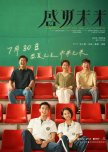
I highly recommend it!
Upcoming Summer is not love story but a story about love. The film touches on themes like learning to be brave by accepting life’s difficult realities. Through their friendship Chen Chen and Zheng mature and are left to explore the people they want to be as they grow into adults.I really like this film and I recommend it. It’s fun, endearing and touching. Wu Lei and Zhang Zifeng deliver really good performances and have great chemistry with each other, and the rest of the cast. The story has a few twists that I know have caused some buzz in China but I personally found it to be beautiful.
Was this review helpful to you?

A consistent drama
Doctor Slump has a good start focusing on what hustle culture and burnout does to the mental health of a professional who is used to be outstanding and has found a wall they can't pass by. I found this storyline, regarding Park Shin Hye's character, the most engaging and I think she delivered a really solid portrayal of a person living with a depression diagnosis and going totally under the radar. We usually wonder how people get to a certain point in life and if her character hadn't been able to ask for help, one would have to wonder if her story might have been different.On the other hand, Park Hyun Shik's character takes a more conventional arc that we are used to see in this kind of dramas: the hot shot doctor who finds himself abandoned by everyone, except this story finds way to give us glimpses at this life and how utterly lonely it has been. Almost alienated and finding a difficult time to make real connections. His downfall, I think, it's a blessing in disguise because he finds himself with the possibility of exploring other ways to form lasting relationships.
The two main characters are the perfect fold of each other and their arc together it's very endearing to watch. Going from childhood rivals, to comrades in sadness, friends and finally falling in love with each other. They have seen themselves and the other in their worst and find a way to hold up each other, only like a true friend can. And that's why they are so darn cute to watch.
There are other characters dealing with certain social status and mental health issues but theirs are never properly developed until the last minute, which is a shame because it would have given one particular character a much more nuanced story.
This is when I have to admit the story fizzles a little when it moves away from its original premise and goes into other genres that, sure, made for an interesting watch but ultimately fell flat.
Nevertheless, Doctor Slump manages to maintain the viewer entertained for its entire run thanks to the great chemistry between all the characters.
Was this review helpful to you?

The friends we make along the way.
I was fully expecting an office romance but I found so much more, as a matter of fact, this aspect of the drama takes a step back and portrays a more real and nuanced reality about how corporate South Korea operates. I was pleasantly surprised.If I had to pick a genre for this drama, instead of office drama, I would go with slice of life instead because -at the end of the day- that's what it is. A portrait of adulthood and what's the best way to move through the world for each character. That happen to work for a big company.
The dynamics between the characters never get melodramatic or borderline makjang, instead we are presented people with different ambitions, social status, experiences. And they all merge in their common goal.
I really liked the friendship aspect of this drama, it is portrayed in a very mature and wholesome way, among people of the same age but also among different generations. They communicate with each other properly and respect what the other is working towards in their respective personal and professional lives. Even when they have their differences, they still are there for each other through everything.
Another highlight of the drama was the second female lead, portrayed by Moon Soo Ri, who is levelheaded, kind and humble. Her story arc was really fascinating to see develop in the screen as we think, at first, she's a woman who puts ambition before anything but by the end of the drama we can see there's more her decisions.
Technically speaking, the drama also excelled with the color palette chosen for each location/set and visually deliver what the characters are going through. A very nice complement to the solid acting given by everyone on this show.
If you are interested in dramas of these characteristics, I think RACE might be for you.
Was this review helpful to you?

Good start, bad execution
This drama started strong but the development was weak and convoluted. It also dragged way too much certain revelations that would have made the main characters more interesting and motivated to take down the big bad.For a cast of this caliber, I am shocked at the material they were given. These are actors I have been following for years and the performances were all over the place, lacking consistency but this is mainly because of the script. I am not sure the screenwriter knew what story wanted to tell or if they bit off more than they can chew.
Overall it's not necessarily a bad drama but it is a waster opportunity for sure.
Was this review helpful to you?

Good start but fail execution
Beauty Newbie had a promising beginning but was hindered by poor execution as it progressed. It didn’t truly satisfy me in its character development nor resolution.It’s impossible to not compare it the original, which has plenty of iconic and infuriating moments. The Korean ver was more scathing on the misogyny and sexism. Females had agency. In this version, so far, the situations are frustrating at best and leading man is doing too much saving in my opinion.
I know some of the actors from other projects and I find these performances weak. I think it’s a problem with the script and directing more than anything else.
I was hoping for something better from this project.
Was this review helpful to you?

Ballet about obsession
This drama special follows the lives of a group of teens that have dedicated their entire lives to ballet, perhaps for the wrong reasons and they need to figure out if what they have been doing is right. I mostly think not. These kids are living a highly cut through environment, despite growing together they are not friends and rather see each other as competition and are willing to go as far as to use a person's weak spot in order to move up instead of relying on their talent.You will see very little actual dancing in this drama since its story follows more the mental state of the dancers rather than their talent, and that's the entire point of the story. These kids rather play mind games that competing fairly or take a moment to realize their own value. There's no self love in this story.
I thought this was a very well done drama about the fragility of a person's mind when they alienated themselves. The solid performances help get the message across, particularly Hong Seo Hee and Kim Min Chul.
Was this review helpful to you?
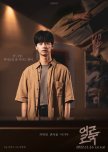
Stark portrayal of poverty based discrimination
In this Parasite coded drama special we can see a first hand a bleak and bitter story of a young university man struggling with poverty and the toll it takes on his mental health.There are several recurring elements in the story that portray the power dynamics between the lead and how society views him. People usually talk over him and don't listen to him, since for them he's not important enough to take up some or any space but, at the same time, they look down on him in other ways. A classmate interrupts his studio piano time at university (the only instrument he has access to for practice) five minutes earlier than schedule in a demonstration that her time is more important and then, before she can deign to touch the piano, she wipes out everything the lead touched. When he ask for a recommendation letter from one of his professors so he can apply to study abroad she directly questions him whatever he thinks he deserves special treatment because he is poor and ending it with a "poverty isn't a talent".
Discrimination due to poverty is the main recurring theme, no doubt, and the portrayal of the micro-aggressions this kid has to endure at University, from his peers and professors, are absolutely disgusting to watch.
Home life is no better. His deadbeat family is no support system. His biological mother passed away years ago, his stepmother and half-brother demand every penny he gains on his own because of a mistake he made as child, and his father doesn't stand up for him.
This first half of the drama sets up perfectly the constant beating this kid is getting, although not physical, but emotionally and psychologically; and the drama makes it clear from its opening scene he's at a breaking point. The second half of the story is when things go from bad to worse and a series of bad decisions take our lead into an horrifying situation that could easily make this drama special Parasite's little brother. It's clear the actions of this character are not out of malice but out of desperation and a life where he has only known indifference from other people.
Cha Hak Yeon gives an incredible nuance and complex portrayal of a beaten soul descent into desperation. It was heartbreaking, even in his most cut-through moments. I am deeply impressed by his performance.
Stain is a compelling drama special and I recommend it.
Was this review helpful to you?

Lighthearted comedy about serious issues
At first hand, Rikokatsu comes across as a lighthearted comedy but I would think it twice before writing it off as just that. Personally, I think this drama presents itself as a easy to watch rom-com but it is full of social commentary about Japan's current situation in relation to their low marriage rates and high divorce rates among older people.Saki, our leading lady, is a competent fashion magazine editor who comes from a progressive family. Because of this, she's not only committed to her work but values her independence and looks a partner who will respect these attributes. On the opposite side we have Koichi, leading man, who comes from a military family with traditional japanese values. Love triumphs over their differences, at the beginning, but cohabitation makes it impossible to look past some blaring problems in their every day life.
The drama never makes Saki say it out loud but she's clearly a feminist, this is one of the main reasons that catapults the problems in their marriage. Koichi expects from her what his mother did for his father: follow the man's rhythm of life, make all the meals, cleaning, etc. I want to make point out that Koichi it's not misogynist because he does respect Saki and sees her as an equal, in fact, when she calls him out on things he changes his behaviour but it's clear that it never occurred to him that a marriage could look different than the one his parents had. On the other hand, Saki doesn't know how to adapt to some of Koichi needs or behaviour that are absolutely normal as a couple because she's used to her parent's marriage where each person had their own thing to the point of not having family meals together once at home.
I found their situation as a mirror of Japan's society as a whole. Cosmopolitan, interesting, independent but also with a deep rich ancient tradition. These two characteristics seem to complement each other well, at surface level, but the social issues in the country it is proof of the imbalance between the two.
I mentioned that Japan currently has a high divorce rate among older people. Marriages of decades that "suddenly" crumble. Well, both leads' find themselves in the situation of having to deal with their parents' divorces because of all the reasons I wrote about before.
Most of the drama it's about a couple finding a balance and accepting there's not one way to be a family. That marriage can look very different according to the needs of the two people involved in the relationship.
Technically speaking Rikokatsu it's really good. The cinematography really beautiful and camera work a mix of traditional and more dynamic. The performances are really good from all the cast. The leads, Kitagawa and Eita, are full of charm and fleshed out their characters in a compelling way. There are no bad guys, just two people trying to figure out life.
For all of these, I fully recommend Rikokatsu.
Was this review helpful to you?

Perfect marriage
MBC will forever be to me the channel that doesn't do things halfway. They either have awful dramas or really good stories, I am glad to say The Story of Park's Marriage Contract is the latter. Another good example of why 12 episodes long dramas are sometimes better, no time to waste and unnecessary conflicts.Lee Se Young and Bae In Hyuk gave great chemistry. They delivered solid performances and nuance characters. There is no perfect relationship but the leads of this drama come very close through proper communication, team work and love. Particularly when you take into account there's time traveling and corporate spies trying to take them down.
Joo Hyun Young, Jo Bok Rae and Oh Yu Jin are scene stealers. Every single interaction between each other or the leads is gold comedy with the added attribute that they are actually super cool characters that have full lives, apart from the main story. So, it's interesting to see well developed secondary characters. Same goes for the rest of the cast.
The story per se it's really fun and the mystery well done. Every week, I wanted to a new clue to resolve what was happening but also find out what new adventure leading lady was going to have. Her charm and openness to the world was invigorating. Definitely one of the best characters of 2024.
Overall, this was a very enjoyable story and I recommend it.
Was this review helpful to you?

Broken dreams and second chances
In this film about broken dreams and second chances, a professional football player finds himself in a difficult position due to a mix of bad decisions and bad luck. He also has no real support system in his mother (who is on the run for scamming people) and his agency wants him to quit the sport to become a celebrity.Is in this moment of his life that to rehabilitate his image he is forced to become the coach of a football team conformed by homeless men that will compete on a charity tournament.
Reluctantly, he learns the reasons why these men found themselves living in the streets. Addiction, bad decisions, abandonment, grief, among other motives. What they all have in common is that through this tournament they are looking to become a better version of themselves.
To record every moment of their journey, a documentary director (deep in student debt and stress) needs to find the right angle to have this film be a success for her and them.
It’s through teamwork and sharing their problems, that this team of odd men out find -perhaps for the first time in their lives- a real support system and even a family.
Dream is a solid comedy with really touching moments that brought some tears to my eyes. The film tries to shed some light on current social issues in South Korea through the housing problem these men are going through.
Park Seo Joon gives a good performance going from disheartened to finding a new dream and people to fight for. His chemistry with IU is hilarious to watch as they play entirely platonic teammates throwing jabs at each other, even long after they start to get along.
IU’s character as the documentary director who is forced to believe in herself into success is both fun and oh, so real.
The heart of the film, however, is Heo Joon Seok, whose character never lost hope and fought from beginning to end so the team could achieve their dream. The rest of the actors bring some emotions though the respective stories that makes the comedy more grounded.
Overall, I enjoyed this film.
Was this review helpful to you?
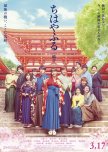
This review may contain spoilers
An enjoyable ending
The review is based only on the events of the film. I feel the responsibility to point this out because the manga is on going, which means the story might take a turn to any possible direction in the future.I finally got the chance to watch this film this week, a very nice and neat conclusion to the world of competitive karuta. For those who need a little reminding, the story follows Chihaya and her friends as a team trying to win the national high school competition and, for some of them, even dream of becoming professionals. But the films also tells us about their personal struggles, sometimes on actual lines of dialogue and, other times, through out the poems been read in the karuta competitions.
The film choose to make a time jump between the second film and the third, putting the last installment of the trilogy on Chihaya’s senior year of high school. She’s only have one goal in her life: becoming the Queen of karuta but now teachers and even friends are taking different routes in life, choosing professions and paths in which they won’t be able to talk together as the tight-knit group they become, so she needs to start thinking what else lays beyond karuta.
On this point, I feel the story failed and achieved something at the same time. It was nice to see Chihaya think of things beyond her karuta bubble with the film didn’t developed properly. I like she kept her goal of becoming Queen until the very end, because at her core that’s who she truly is, but at the same time I didn’t get to see her spend enough time thinking of life outside the sport.
Other professional karuta players are shown to have their own personal and professional lives outside the competitions, so I guess I would have like to see Chihaya be a little more motivated or explicit on what other thing she might want to pursue. Whatever it tis, I’m sure it would have been with the same savage passion she has for everything she loves.
Meanwhile, Taichi finally reached a boiling point. I guess it’s fair to say Taichi has been competing his entire life: against Arata but most importantly against his own insecurities. Taichi’s biggest roadblock has always been himself, by putting others before him to a point of whatever he wants becomes irrelevant in his own life. When he first started playing karuta again, in freshman year of high school, he didn’t do it for himself. He did it for Chihaya, and unlike her his development about what he wishes to do in the future beyond the world of competitive karuta was properly developed.
Taichi finally loses to the pressure and feels forced to leave the karuta team. It’s a nice call back as to the same reasons why Arata quitted karuta in the first film. Back then, Arata lost all motivation when his grandfather had died. He was the reason why Arata started and continue to play the game and with him home he needed two films to find a reason to do it for himself.
The same thing can be said about Chihayara. She’s always played for her, a point the film makes perfectly, and because of that she’s able to support her teammates, show respect to her opponents and inspire her juniors.
If you ask me, the third film in this trilogy is Taichi’s film. It’s the conclusion to his journey and the answer his been looking for since day one. The card choice at the end, where he’s putting all his feelings out in the open, is him finally stepping forward and withholding nothing.
As for the love triangle, I would rather concentrate on the personal story of our three main characters. I believe this story is so popular because of the everyday and common struggles the characters go through that resonate with people, and not because of a love triangle.
Chihaya’s answer remained true to herself, as mentioned before, because she’s never really thought of anything beyond the karuta world. Of course, Arata put himself out there, in all the ways possible, because Arata never doubts himself once he has set his eyes on the prize. And, of course Taichi is the last man standing next to Chihaya because that’s also part of who he is.
That said, of course, I have a team I’m rooting for and personally I believe the story told in this film serve for the benefit of one team rather the other. But to get a real and final answer about Chihaya’s feelings, we will have to keep on reading the manga.
Kudos, to the amazing supporting cast who it’s as wonderful as always. Making the smallest moments incredibly funny and heart warming, even sometimes stealing the entire show from the leads. Thank you!
Was this review helpful to you?
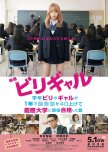
Wonderful!
Flying Colors is one of my all favorite japanese films that has been released in the last few years. I don’t understand why it didn’t have more repercussion, maybe they thought it wasn’t a good enough film because it deals with what we can categorize with “first world problems”, but they are still problems. And I found the story compelling, relatable and endearing.Let me point out that this film is based in a book that at the same time is based on the true story about a teacher and one of his students who decided on her last year of secondary school to apply for Keio University. Let me tell you, Keio is no small feat. This academic institution ranks 9th in the world in the Times Higher Education’s Alma Mater Index and the Academic Ranking of World Universities ranks it at 37 in Asia.
Whatever our leading lady made it into one of the best universities in the world or not is irrelevant. What it really matters is the incredible grit she showed through a year of hard work, the amazing mother who supported her and the teacher that made all the difference.
We usually talk or read about inspiring teachers who achieved life changing moments in their students lives. These students usually come from impoverish neighborhoods and difficult family situations, to those teachers and students who made it through and become more than anyone ever expected of them, I applaud them. They are making all the difference.
But not all “trouble” students come from a bad social-economic situation at home, and I believe that’s mostly the case in Japan. As wonderful as countries like Japan are, they also have their problems. People who are different, express themselves in a way that’s not the norm and show a certain proclivity for individuality don’t always have a good time in this kind of societies where the thought process has more weight in the collective. And if they don’t find a support system (friends, family, anything really) they ended up not finding their place in society (hikikomori, anyone?). Now, this is only my opinion and you are more than welcome to comment on it.
Kudo Sayaka is a middle class girl with a carefree lifestyle. Sayaka has never faced difficulties, hunger nor poverty but she has been treated and called trash to her face by her professors for not behaving in a “correct” way. She’s lucky to have a good group of friends who support her and a mother who is willing to go beyond for her to be happy. Sayaka’s father needs some work, since he puts all his hopes (and money) on her little brother and completely ignoring his two other daughters.
Sayaka is on her junior year when she’s suspended for an indefinite time. Her mother, always wishing the best for her, talks her into going to a preparatory school so she won’t miss classes. Is in this academy where Sayaka meets teacher extraordinaire Tsubota Yoshitaka, who manages to grab the attention of all students by connecting their personal likings and hobbies with their studies of history, english, math and so on. With this method, Tsubota manages to make the students take an interest in school and apply themselves to learn and do better, even dream to become students of universities like Keio.
I thought this film was not only good storytelling but also relatable because the problems the characters go through have a root in real life problems. The way Sayaka, the other students and Tsubota sensei built up their confidence and find a new sense of self worth is wonderful.
Sayaka is an amazing leading lady, she is strong-willed, independent and outspoken. She’s never afraid to ask questions, no matter how silly they seem and other people’s comment only fuel her inner fire. Do this comments affect her? Of course. There’s a limit to the verbal abuse you are willing to fight and some cut deeper than others, especially when they come from people we love.
I really recommend this movie. It made me laugh, cry, yell and cheer for all the characters to become better, to achieve their goals and prove themselves to be everything they ever dreamed.
Was this review helpful to you?
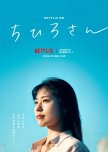
The story follows a young and charming woman named Chihiro. We know from the beginning she used to be a sex worker but now lives in a small seaside city, selling bento (Japanese lunch boxes). Her outgoing personality and easy smile is infectious but it’s clear she also has a rich inner life. Chihiro goes around town making friends. A collection of lost souls, each with their own issues, brought together by her. Her life experience allows her to read a room and people with ease, and she’s mainly a listener but when he shares her thoughts you soon can see she’s wise beyond her age and is able to help others.
Despite her constant kindness towards others, Chihiro’s existence is stray-like and detached. She doesn’t shy away from relationships with others but she doesn’t exactly share herself fully. There’s a loneliness and resignation about her. She knows she is not leading a happy life but more like a collection of happy moments and that’s fine with her.
Call Me Chihiro is a fairly quiet little movie, about every day life and the people who make up our world. This isn’t a grand epic, with huge scenes of spectacle, it is very much a calm, occasionally sedate story from start to finish. At times its rhythm reminded to the waves of the ocean, constantly and endlessly reaching the shore. Sometimes calm and peaceful, others more harsh. On this, Call me Chihiro is the quintessential Japanese film about shading appreciating the small gestures and accepting everyone, no matter how poor or rich their background because in the end none of that matters. It’s your actions that speak volumes about the kind of person you are.
Arimura Kasumi remains, to me, one of the most interesting and talented Japanese actress working today. She certainly knows how to carry a story but also when to let others shine. The character of Chihiro could have easily end up being a rather flat but thanks to Arimura’s performances we easily accept her and are willing to go with her on this journey of self discovery and worth. By the final scene of the movie, we understand Chihiro’s decisions and loneliness. Most importantly why, by the end, she is ready to start anew.
Was this review helpful to you?
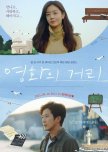
Meeting and letting go.
Hwa-sun is a location manager based in Busan. Her ex boyfriend, Do-young, a former film student with aspirations to become a successful director left many years ago for Seoul, where the film industry is bigger. She didn't want to go and he didn't want to stay, and despite the love between them, their relationship came to an end.In present day, they are reunited through Do-young's new project. He's back in Busan for it and believes Hwa-sun is the right person to help him finds the locations he wants. It's obvious they have both kept themselves busy and achieving success in their respective fields. While Do-young choose the fast lane and became an up and coming director, Hwa-sun has slowly build a reputation and renown name among the industry insiders.
As they walk together the streets of this city that once saw their love bloom and wither, they find themselves revisiting their shared history, they also contemplate their choices and where they are at now. What happens when growing up means letting go? Would they have done any different? Can they find closure to this open wound?
Cinema Street it's a beautiful love letter to that one love that helped you grow as a person but also pushed you to want to become a better version of yourself. This rhythm of the script is contemplative but never boring. Han Sun-hwa and Lee Wan deliver good performances, nuance and mature, as two people finding themselves (perhaps for the last time) in front of the one that got away. The cinematography is what you would expect from an indie film set in Busan: beautiful to look at.
Overall, I really enjoyed this film and I hight recommend it to anyone.
Was this review helpful to you?

Sweet and endearing!
The Love You Give Me is a fun, endearing and sweet story about second chances.Wang Yuwen and Wang Ziqi reunite, after working in their hit drama Once We Get Married, and prove they still got it. Their easy going and sizzling chemistry remains top notch and carries the entire show effortlessly.
If casting directors want to reunite them for a third time in a drama, they have my blessing. Please and thank you. Watching these two work together is a joy and pleasure.
My one complaint about this drama is that it could have been a few episodes shorter; the antagonist storyline ran too long. But overall this is a solid and entertaining watch you can simply sit back and enjoy. Maybe get mildly frustrated with one or two characters.
The opening and ending song are good as well.
I recommend it!
Was this review helpful to you?






















